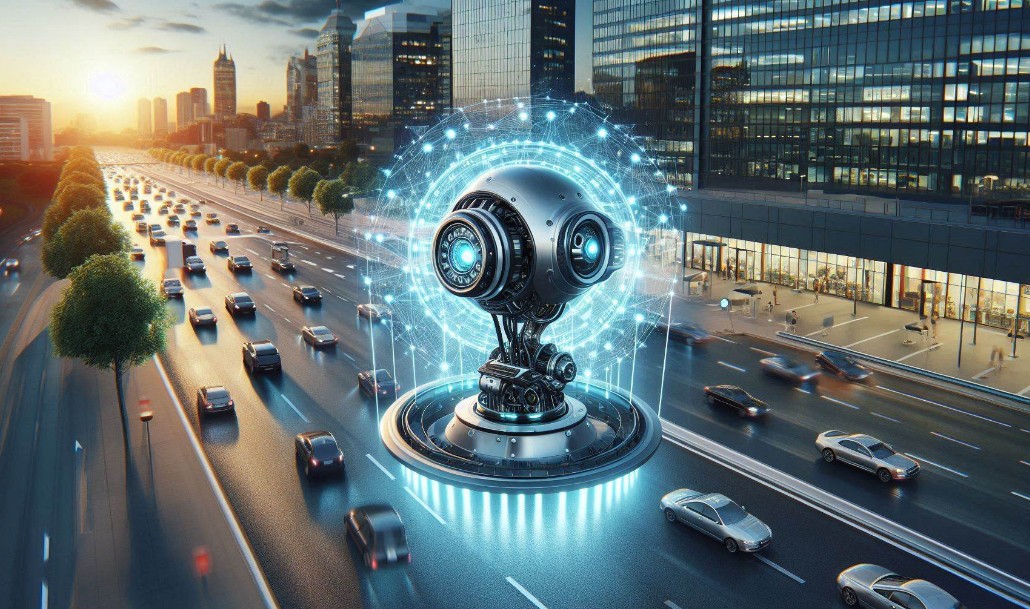In recent years, there has been a significant advancement in the field of Artificial Intelligence (AI) and Augmented Reality (AR). These technologies have become increasingly popular and have the potential to enhance virtual experiences in various fields such as gaming, education, healthcare, and...
Artificial Intelligence in Video Surveillance Pros and Cons

Recent developments in automated systems have transformed the way security operations are conducted. These innovations aim to enhance efficiency, accuracy, and overall safety by leveraging modern computational methods. As a result, more and more industries are incorporating these systems into their day-to-day operations, hoping to achieve better results with less human intervention.
However, the integration of such sophisticated tools also raises concerns. While these systems offer potential advantages, they bring about new challenges that must be carefully considered. Balancing the benefits with the possible drawbacks is key to understanding how these technologies will shape the future of security measures.
Embracing these advancements means weighing both the enhanced capabilities they offer and the questions they raise regarding privacy, reliability, and long-term impact on society. It's essential to explore both sides to fully comprehend the implications of their widespread adoption.
Benefits of AI in Surveillance Systems
Modern advancements in automated systems have led to significant improvements in how security measures are carried out. These technologies allow for the faster processing of large amounts of data, enabling quicker responses and more precise actions in monitoring environments. Their ability to learn from patterns helps in identifying potential risks with remarkable accuracy.
One of the key advantages is the increased efficiency in detecting unusual activities. The system can analyze feeds continuously, flagging any suspicious behavior without the need for human intervention. This results in a more reliable and consistent monitoring process, particularly in high-traffic areas where human resources might be limited.
Moreover, such technologies offer enhanced accuracy when distinguishing between legitimate activities and potential threats. Their ability to focus on minute details reduces the likelihood of false alarms, which is crucial for reducing unnecessary disruptions and ensuring that security teams focus only on real threats.
Additionally, the use of automated systems significantly reduces the dependency on human workers, allowing personnel to focus on more strategic tasks. This results in cost savings and greater overall productivity while maintaining a high level of vigilance in protecting assets and people.

Challenges and Risks of AI Integration
While modern automated systems offer great potential, they also bring a set of challenges that must be addressed. The complexity of these technologies can sometimes result in issues related to their implementation, performance, and reliability. Organizations must carefully evaluate these risks before adopting them into their operations to ensure they achieve the desired outcomes without unexpected drawbacks.
One significant concern is the accuracy of these systems. While they are designed to recognize patterns and identify threats, they are not infallible. There is always a possibility of false positives or false negatives, where harmless activities may be misinterpreted as dangerous, or vice versa. This can lead to unnecessary interventions or, worse, missed threats.
Another major risk is related to data privacy. The extensive use of automated systems to monitor public spaces or private property raises concerns about the collection and storage of sensitive information. Striking the right balance between enhancing security and respecting privacy rights is a critical challenge that must be carefully managed.
Dependence on technology also poses a potential vulnerability. Systems that rely heavily on automated decision-making could become susceptible to cyberattacks or malfunctions. A failure in these systems could compromise security, leading to serious consequences if the system cannot respond to emerging threats in a timely manner.
Future of AI in Security
The role of automated systems in the field of protection is poised to grow significantly in the coming years. As these technologies continue to evolve, their capabilities will expand, offering even greater efficiency and reliability. The future of security measures lies in enhancing the accuracy, speed, and overall effectiveness of monitoring operations, making these systems indispensable for safeguarding people and assets.
One of the most exciting developments is the integration of advanced learning techniques, which will allow these systems to become even more adept at understanding complex scenarios. With the ability to analyze larger sets of data and make more informed decisions, they will play a key role in preventing threats before they can escalate. This will revolutionize how security teams respond to emergencies, reducing reaction times and improving outcomes.
Moreover, the continued improvement of these technologies will lead to increased accessibility, allowing smaller organizations to benefit from high-level protection that was once available only to large institutions. As costs decrease and systems become easier to implement, broader adoption will occur, leading to safer communities worldwide.
However, as technology advances, ethical considerations will remain at the forefront of discussions. Ensuring that these tools are used responsibly, with proper safeguards to protect privacy, will be crucial in shaping the future of security. The focus will shift not only to what these systems can do, but also to how they can do so in a way that aligns with societal values and legal standards.



